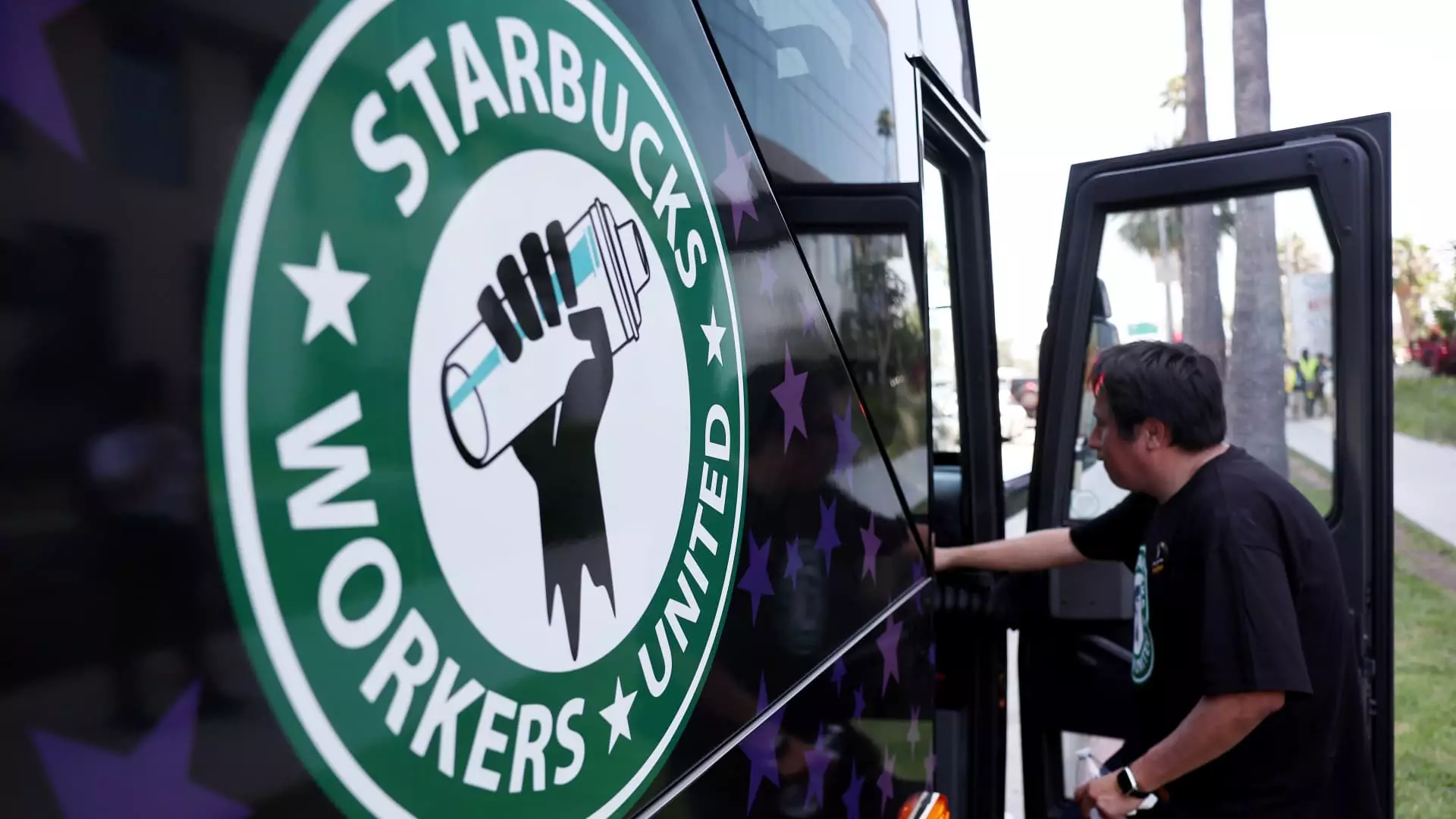Starbucks Workers United has recently made headlines by announcing that a staggering 98% of their unionized baristas voted to authorize a strike. This monumental vote underscores not only the frustrations felt by employees over contract negotiations but also signals a potential escalation in tensions between labor and management within the coffee juggernaut. The union’s call for a strike is a pivotal moment in a protracted struggle for better working conditions, fair wages, and enhanced benefits, indicating that the stakes are higher than ever for both the employees and the company.
As the year draws to a close, Starbucks and Workers United are set to engage in their final bargaining session, hoping to forge a “foundational framework” to address employees’ needs. While it’s clear that both parties have invested considerable time—hundreds of hours—into negotiation, the progress remains muddled. The union highlights that numerous unfair labor practice cases are unresolved. Furthermore, the absence of a comprehensive proposal from Starbucks addressing key issues like barista compensation suggests a stagnation in achieving a mutually beneficial agreement.
Despite Starbucks portraying the negotiation process as productive, stating that they have reached significant agreements on pivotal topics, the union’s willingness to strike indicates a pervasive sense of inadequacy. This contradiction raises questions about what defines productive discourse within corporate structures, where the acknowledgment of employee worth plays a crucial role in workplace harmony.
Starbucks is confronting the consequences of its corporate strategies and labor relations, particularly as a new leader, CEO Brian Niccol, enters the fray. His intentions to negotiate in good faith and recent announcements, like the doubling of paid parental leave, signal a shift in approach. However, analysts point out that these gestures don’t fully remedy the underlying discontent. A reported smaller annual raise for baristas amidst declining U.S. sales casts a shadow over Niccol’s efforts and raises concerns about prioritizing financial stability over employee satisfaction.
Public sentiment plays a crucial role in this narrative. Starbucks has faced backlash from consumers and lawmakers due to its previous attempts to stifle unionization efforts. This public scrutiny puts pressure on the company, ensuring that any missteps in labor relations are met with widespread criticism, further complicating its image as a socially responsible employer.
In the backdrop of this labor strife is the remarkable rise of unionization efforts at Starbucks locations, with over 500 cafes voting to unionize in just three years. This momentum reveals a significant shift in employee attitudes toward collective bargaining rights and worker representation. The narrative surrounding unionization is reshaping the corporate landscape and demanding a closer examination of labor practices across industries.
As negotiations between Starbucks and Workers United continue, the emerging dynamics will be pivotal not only for the baristas involved but also for the future of labor relations in similar industries. The outcomes of these disputes could potentially influence corporate strategies nationwide, laying the groundwork for a new chapter in the relationship between labor and management. The question remains: will Starbucks rise to the occasion and address the grievances of its workforce, or will tensions escalate to a breaking point?

